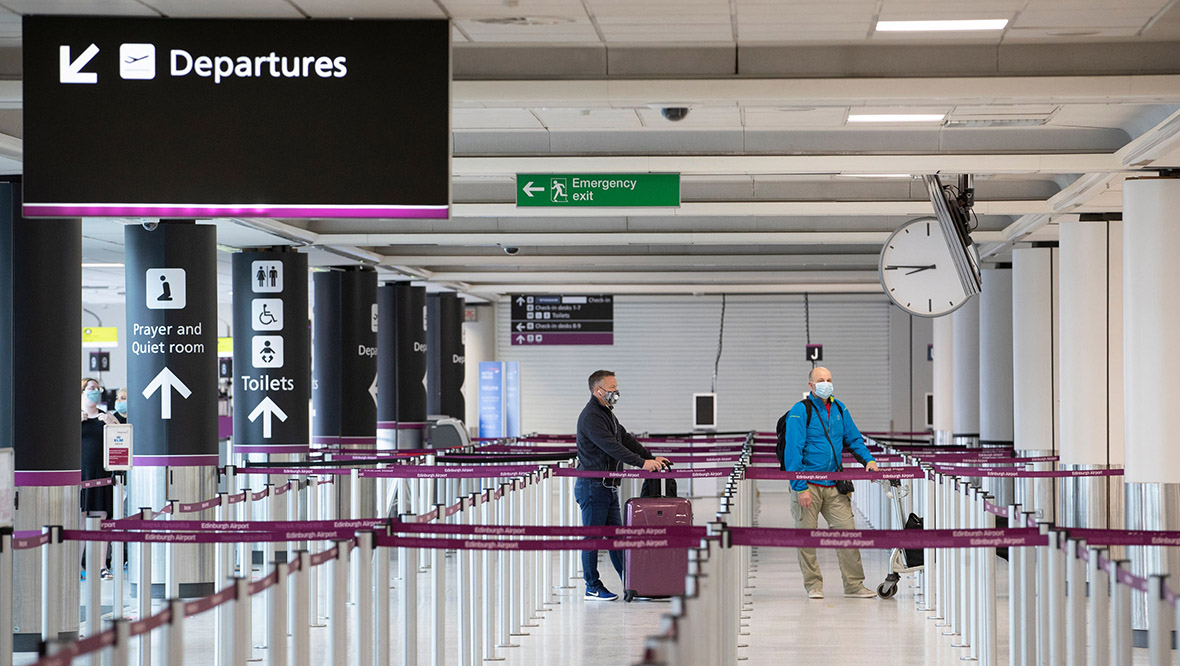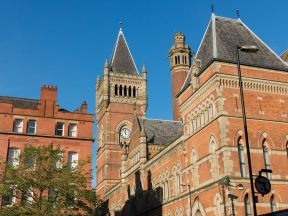Fewer members of the public anticipate using buses, trains and planes after Scotland has emerged from lockdown, according to new research.
An Edinburgh Napier University survey suggests the coronavirus pandemic may have long-term repercussions for the country’s public transport.
It found 42% of respondents (994 Scottish residents) think they will not fly as much, with 36% using buses less and 34% not travelling by train.
Dr Achille Fonzone, associate professor of transport analysis and planning at Edinburgh Napier, said: “Although part of it may be due to current overexposure to discussions about infective diseases and so be transient, such lack of confidence in public transport is not good news for the industry.
“It is not good news for Scotland either, considering the importance of public transport to ensure an equitable and sustainable mobility.
“Reducing inequalities and the impact on the environment are the two top priorities of the National Transport Strategy of the Scottish Government.
“The potential loss of demand for public transport must be understood better and suitable actions must be taken as soon as possible.”
Nearly half (45%) of respondents expected to walk more, according to the survey, with 29% expecting to cycle more.
However, 25% expected to drive their car more in the post-Covid future than they did before the pandemic.
Lucy Downey, the report’s lead author from the School of Engineering and the Built Environment, said: “The findings are positive for active travel, which seeks to promote healthy journeys and offer viable alternatives to the private car or public transport for short journeys and an opportunity for exercise.”
The “Impact of Covid-19 on travel behaviour, transport, lifestyles and location choices in Scotland” report was produced by the university’s Transport Research Institute with backing from the Scottish Funding Council.
More than a fifth (21%) of respondents live in households without access to a car, while 29% have two or more cars at their household.
Dr Greg Fountas, from the same institute, said: “A shift to private cars post-pandemic would hamper the efforts to drastically reduce the carbon footprint of the transport sector.
“That is alarming for Scotland, where transport constitutes the largest source of greenhouse emissions – more than one third of the country’s total emissions in 2018, according to the Scottish Government.”
In response to the study, a Transport Scotland spokesman told the PA news agency: “Throughout the pandemic our messaging has been based on the latest public health advice, the nature of travel restrictions in place, and varying demand for transport.
“The Scottish Government has also invested significantly to ensure transport services were available at key times, also allowing for more capacity on some busier routes as we ease out of lockdown as part of the wider route map.
“The first annual National Transport Strategy Delivery Plan, published in December 2020, includes an action to encourage people back on to public transport post-Covid-19, once it is safe and appropriate to do so.
“We also want to build on the momentum of the increased popularity of walking and cycling witnessed at certain points during the pandemic.
“As restrictions ease, demand for public transport will increase, however, we will still need to manage capacity to ensure physical distancing is maintained as much as possible.
“We are encouraging all those travelling for whatever the purpose to plan ahead, avoid busy times where possible and make use of real time planning information including the bus capacity information available from Traveline.”
A spokesman for AGS Airports Ltd, which owns and operates Aberdeen and Glasgow airports, said: “The aviation industry continues to face unprecedented challenges as a result of this pandemic, with passenger numbers down as much as 95% during the 12 months when air travel was effectively grounded on a global level.
“It has been widely forecast that we won’t see a return to pre-Covid-19 levels of traffic until the latter part of this decade, which is concerning when you consider how important aviation is to the wider economy and the pivotal role it will play in helping to get the country moving again in the weeks and months ahead.”
Follow STV News on WhatsApp
Scan the QR code on your mobile device for all the latest news from around the country


 PA Media
PA Media
























